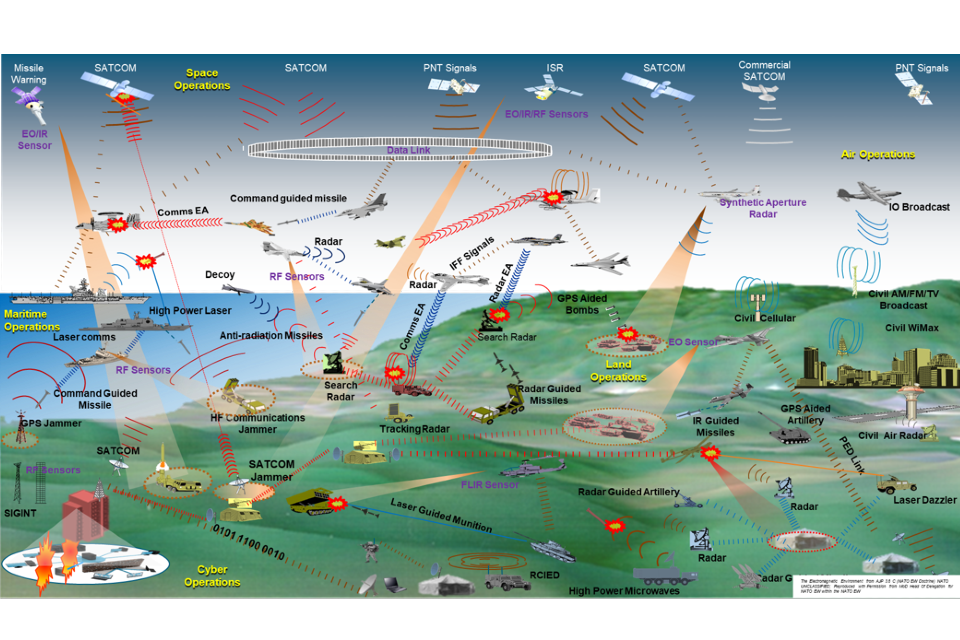The Defence Science and Technology Laboratory (Dstl) is hosting its second Operating in the Future Electromagnetic Environment (OFEME) symposium on 23 and 24 November 2021, inviting representatives from industry, academia and across government to consider the challenges and opportunities of using the electromagnetic spectrum in defence and beyond.
In today's connected world, the electromagnetic environment is crucial for many sectors, such as mobility (moving people, goods and services), a connected society and healthcare. In defence, spectrum dependent systems are ubiquitous across land, sea, air and space, being used for communications, sensing, weapons systems and more.
However, the parts of the electromagnetic spectrum commonly used - primarily radio frequencies and microwaves - is facing increasing congestion, which limits our ability to efficiently and reliably exploit energy or information in a timely manner. Our reliance on parts of the spectrum that are in high demand and used by multiple occupants has been reported as a looming 'spectrum crisis'.
Some solutions are starting to emerge, such as how we can use less-congested parts of the electromagnetic spectrum, and these solutions may also offer additional advantages. The question remains: have we sufficiently explored options for improving electromagnetic spectrum access and operations within congested bands?'

Figure: The Electromagnetic Environment from AJP 3.6 C (NATO EW Doctrine) NATO UNCLASSIFIED; Reproduced with Permission from MoD Head of Delegation for NATO EW within the NATO EW.
The challenge of congestion, deliberate or otherwise, is, a shared feature across all sectors. In the defence context, the electromagnetic environment can also be 'contested', such as through electronic warfare, where reliable spectrum access can be deliberately denied or degraded.
To help solve these challenges, academics, suppliers including small and medium-sized enterprises, and colleagues from MOD and other government departments are invited to join the OFEME symposium, to work alongside Dstl's scientists and shape future thinking. The event will cover:
- shared challenges for operating within the future electromagnetic environment, both inside and outside of defence
- how research and development investment can be harnessed in future approaches
Dstl is planning to hold the symposium as an in-person event at the Institution of Engineering and Technology (IET) in London. It will feature a range of keynote speakers, technical presentations, poster sessions and interactive workshops. Topics include:
- Applications of mathematics in the electromagnetic environment
- Integrating sensing and communications to address the electromagnetic spectrum congestion
- Microwave and terahertz sensing, imaging and metrology using Rydberg atoms
- Ethical principles for artificial intelligence in national defence
F






